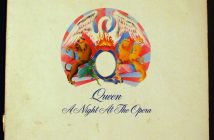“Your grandad had a saying: “Our lives are remembered by the gifts we leave our children.” This journal is his gift to you, Milo. Atlantis is waiting. What do you say?”
Positioned within the experimental period of the Disney post-renaissance, Atlantis: The Lost Empire is one of its most distinctive and ambitious projects to date. Broad and grandiose in every sense, its revitalizing abandonment of the usual musical form synonymous with the company’s brand image makes away for an absorbingly pulpy and sweeping genre hybrid between fantasy, sci-fi, action and adventure. It’s positively full to bursting at the seams of its (by Disney standards at least) 2.39:1 ratio, dishing out overwhelming heavings of imaginative concepts, ancient wonders and mile-a-minute humour, all the time commenting on the narrative’s neocolonialist underpinnings in many surprisingly self-reflexive ways.
Taking the thrust of its plotting from the literary works of Jules Verne (Twenty Thousand Leagues under the Sea the most noteworthy example), directors Gary Trousdale and Kirk Wise, the heads behind the equally bold and daring adaptation of The Hunchback of Notre Dame (1996), imbue the film with a perfervid singleness not usually matched in Disney’s line-up. This is not just evident in its unusual and repeatedly jaw-dropping graphic, angular animation styled after Mike Mignola, or its slightly more mature appeal and content, but in just how rapid it paces itself; at constant on delivering adventure and excitement to the audience. Along with its deeply idiosyncratic and delightfully winsome band of morally dubious mercenaries, not to mention the incredible range of voice talents assembled, Atlantis: The Lost Empire delivers some of the sharpest, quick-witted dialogue ever written for an animated feature (“tell Cookie to melt the butter and break out the bibs, I want this lobster served up on a silver platter!”). All of this wonderfully supplements its magnificent, meticulous world-building of a gothic Enlightenment-era America and the singularly constructed ancient civilisation of Atlantis, including an entirely whole new language specially created for the film. If that isn’t a sign of the filmmaker’s passion, little else can prove it. As with its aesthetics, then, Atlantis is also an astounding sonic sandbox, with James Newton Howard’s truly astonishing and beautiful score largely the source in generating the scope and tension of the story, bringing surprise emotion in places the film otherwise does not, and top-notch sound mixing and design to boot. Most of all, though, is its unmistakable atmosphere of discovery, adventure and mysticism that abounds the runtime, the almost tactile invocation of a history and mythology that while fictional feels so real; all within its rather complexly woven tale of cultural and familial legacies, the evils of colonialism and capitalism, the blindness of war and the ever-lasting quest for knowledge, among other ideas.
While not exactly landing correctly on some of these rather lofty topics, especially with its mostly archetypal structure, Atlantis: The Lost Empire nonetheless succeeds as a spectacle worth revisiting time and time again; its unique identity helping make it an invigorating experience to this day. It continues to hold up wonderfully and unveils its greatness more and more with each subsequent viewing, packed with a multitude of smart, subtle details that add further to the world and concepts. Suffice to say, Atlantis is waiting for you. Perhaps it’s finally time to take the dive.
Atlantis: The Lost Empire is available on Blu-ray, DVD and digital. A documentary of the making of the film is also available for free. Watch the trailer below:
https://www.youtube.com/watch?v=D_1yq1xJ3QA




